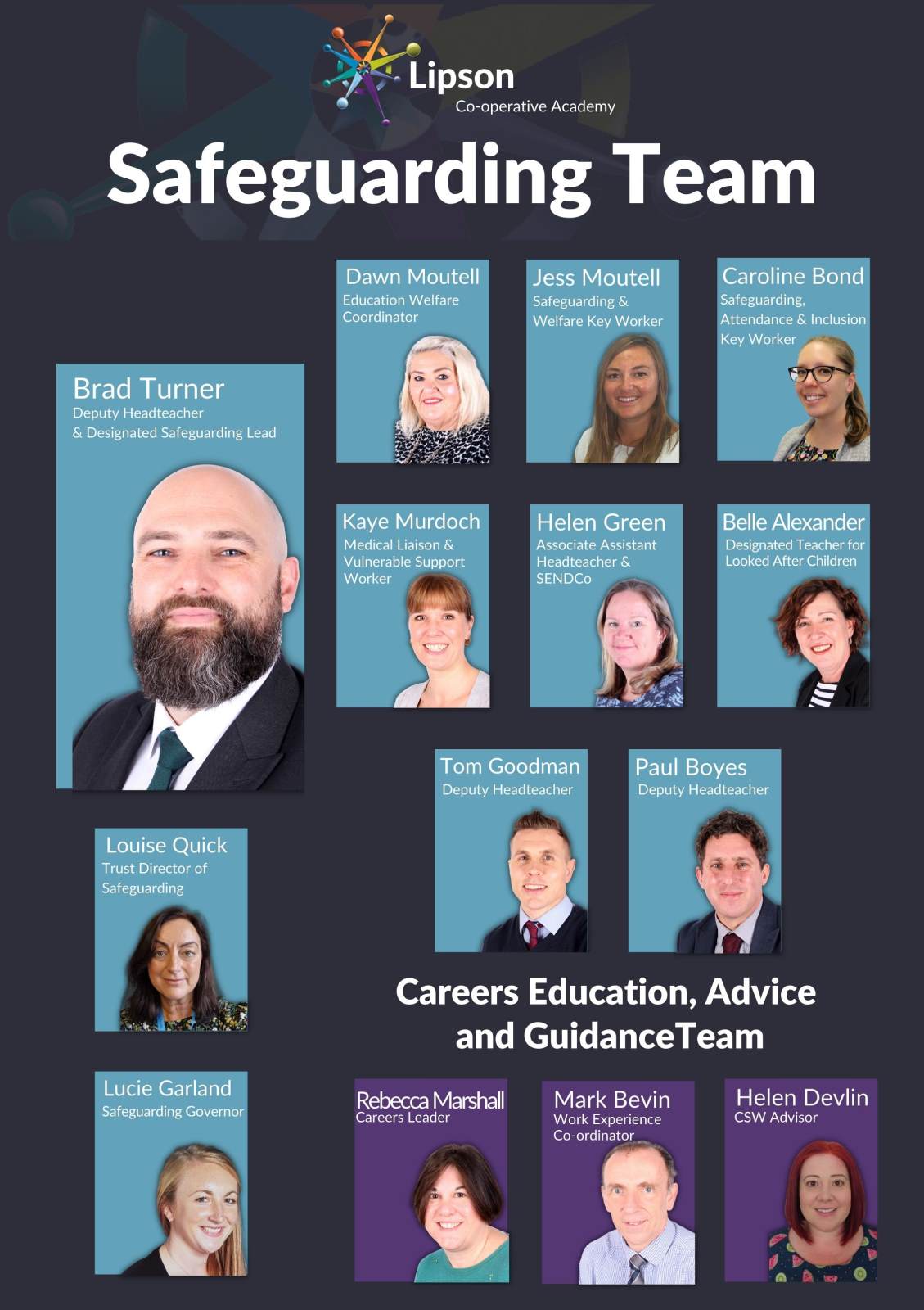Safeguarding

Never Keep Concerns About Children's Safety To Yourself
Remember these three important messages:
-
All children have a right to be safe no matter what their circumstance
-
Keeping children safe is everyone’s responsibility
- We all need to listen to children even though we may not always be comfortable with what we hear
Please contact us within school hours if you have a concern. We cannot keep safeguarding concerns about children and young people confidential and may need to pass on information to Children’s Social Care or the police to investigate further.
Important:
Please use this link to access a letter to all parents outlining procedures for Operation Encompass.
Useful Reference Documents
Plymouth Online Directory - Support for young people and their family
Young Person's Guide to Working Together to Safeguard Children
A Parent’s/Carer’s Guide to Safeguarding
Are you worried about the safety of a child?
For parents and carers
There may be times, as a parent or carer, when you need help, advice or information when caring for your child. This page provides links to sites where you can access information and get advice on a number of subjects. It also gives advice for when children's social care, the police or the NSPCC are involved with your family.
Child protection enquiries and child protection conferences
You may have been told that child protection enquires are being made about your child, or that a child protection conference is going to be held. The links below will explain what this means and how you can make a complaint if you are not happy with the way that these were conducted. This information is all provided by the Plymouth Safeguarding Children’s Board.
http://www.proceduresonline.com/swcpp/plymouth/index.html
http://www.proceduresonline.com/swcpp/plymouth/p_ch_protection_conf.html
Complaints about schools and academies
If you are concerned about your child's school, you should start by talking directly to the teachers or Principal or, if necessary, the governing body or the local authority. If you are not satisfied with the responses you have received Ofsted may be able to help.
Private fostering
A private fostering arrangement is one that is made privately (not through the local authority), for the care of a child under 16 years (or under 18 if the child has a disability), by someone other than a parent or close relative with the intention that it should last for 28 days or more.
To help keep children safe and support families, all parents and private foster carers must notify the local authority of their intention to enter into a private fostering arrangement. If you think this applies to you contact the MASH and they will be able to provide further guidance and if necessary arrange for someone to visit you to discuss the proposed arrangements.
Useful contacts
Bullying
If you think that bullying is just a part of everyday school life, you're wrong. No-one deserves to be bullied and you shouldn't ignore the problem.
http://www.direct.gov.uk/en/YoungPeople/HealthAndRelationships/Bullying/DG_10031370
Online safety
Think U Know is a set of resources developed by the Child Exploitation and Online Protection (CEOP) Centre at website: www.thinkuknow.co.uk to help educate young people, parents and teachers about safe and positive use of the internet.
Know IT All is a set of resources developed by Childnet International at www.childnet-int.org/kia to help educate parents and teachers about safe and positive use of the internet.
Child Exploitation and Online Protection Centre (CEOP)
CEOP work to encourage all organisations that have an online presence where children and young people congregate to adopt the CEOP 'Report Abuse' mechanism. You can report abuse at www.ceop.gov.uk/saferbydesign/reportabuse.asp
Family Lives
A national charity that works for, and with, parents. It works to offer help and support through an innovative range of free, flexible, responsive services.
Tel: 0808 800 2222
Barnardos
Helps all kinds of families to cope with a wide range of issues including poverty, abuse, and homelessness.
Tel: 01268 520224
Kidscape
Gives information for parents on a range of ways children can be bullied including cyber bullying and gives advice on keeping children safe online.
Tel: 020 7730 3300
Missing Person Helpline
Tel: 0500 700 700 (24 hours)
National Drugs Helpline
Tel: 0800 77 66 00 (24 hour free advice)
NHS Direct
Tel: 0845 4647
NSPCC
Offers some helpful information for parents and carers on a range of issues, such as internet safety, protecting children at home and positive parenting tips.
Tel: 0808 800 5000
Parents against Child Sexual Exploitation (PACE)
Free E learning course for parents and carers on Child Sexual Exploitation aimed at raising awareness, identifying signs and providing advice on what to do if you have concerns. Go to the website at www.safeguardingchildrenea.co.uk and follow the simple registration process.
Women's Aid Federation
The key national charity working to end domestic violence against women and children. Support a network of over 500 domestic and sexual violence services across the UK.
Tel: 08457 023 468
Parents Centre
Information and support for parents on how to help with your child's learning, including advice on choosing a school and finding childcare.
Self-Harm
Information and advice on dealing with the urge to self-harm:
www.thesite.org/healthandwellbeing/mentalhealth/selfharm
Childline
A free 24-hour helpline for children and young people. You can call about any problem at any time, day or night. ChildLine's counsellors are there to help you find ways to sort things out. Their website can also offer you help and advice.
Tel: 08100 111

